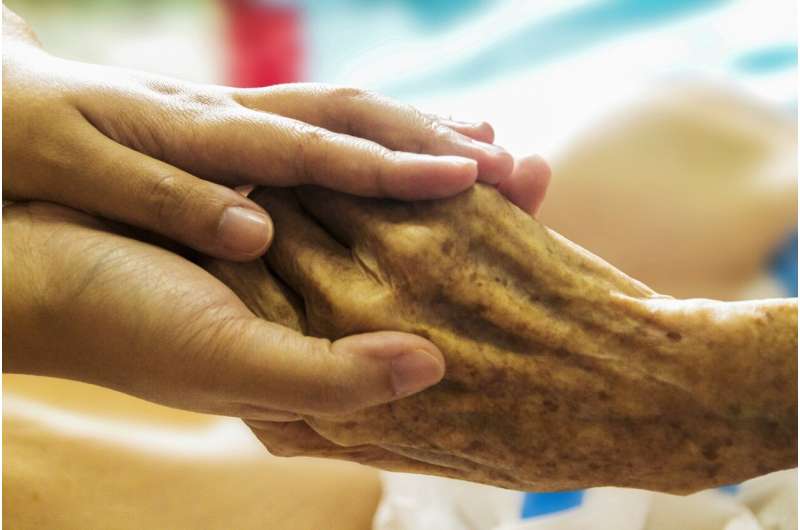Research shows hospice care was compromised during pandemic, but there is hope for the future


During the COVID-19 pandemic hospice care across the West Midlands fell below the “gold-standard” despite the best efforts of frontline health care professionals.
The findings were revealed in a report from the end of life charity Marie Curie and based on research from the University of Sheffield and University of Warwick, which is the first of its kind to examine the direct experiences of hospice patients, caregivers, hospice staff and senior managers during the pandemic.
It found that personalized, holistic care for patients and families was compromised at times despite the best efforts of hospice staff to maintain it.
This was due to guidance being updated frequently, personal protective equipment (PPE) making patient care challenging and the suspension of volunteers who were in patient facing roles.
Dr. Catriona Mayland, senior clinical research fellow at the University of Sheffield, said, “During the pandemic, hospices had to adapt rapidly to changing circumstances, and embrace new approaches to care.
“Going forward, it is important to retain some of these novel initiatives and partnerships especially with primary care and community colleagues. The specialist skills provided within hospices remain vitally important but widening connections with health and social care providers to help serve local communities is also imperative.”
The report also found that changes to rules about visiting resulted in many friends and family not being with loved ones at the end of their life, which caused emotional distress for the people being cared for and hospice staff.
Despite these challenges, local hospices played a vital role in caring for people dying at home by sending their staff into patient’s homes and care homes and using technology to stay in touch with the people they were supporting.
The research said bereavement during the pandemic was extremely challenging for caregivers. Hospice staff were also left exhausted, leaving some at risk of long-term burnout and in need of specialist bereavement and mental health support.
Given the population of the West Midlands—with one in three people being from an ethnic minority group and its level of deprivation being above the national average—the report’s findings could help shape national end of life care policy as the U.K. recovers from COVID-19.
The report makes several recommendations, including the need for 24/7 palliative care services, improved mental health and bereavement support, and more flexible care for people with English as their second language and for people with dementia.
In addition, Marie Curie is calling for Integrated Care Bodies—the NHS bodies responsible for commissioning local health services—to prioritize palliative and end of life care in their plans for local health services in the West Midlands and nationally.
Dr. Sarah Wells, Medical Director at the Marie Curie Hospice, West Midlands, said, “The day after the first lockdown was the worst day of my career. That was the day that we had to ask all the visitors to go home. Everyone had to say goodbye to their loved ones.
“Some knew they wouldn’t see them again. It was devastating. It went against every instinct of mine as a palliative care doctor, but the friends and relatives of patients understood why we were having to do this. They were selfless and stoic in the face of unprecedented challenges.”
Julian Knight, Member of Parliament for Solihull, said, “I pay tribute to the people of the West Midlands who went through so much during the COVID-19 pandemic and especially to local hospice staff who made heroic efforts to care for people with a terminal illness and their families in very challenging circumstances.
“The Government has just introduced the first ever legal duty to commission palliative care services in the history of the NHS. I hope this will help hospices continue their vital work to ensure local people and their families have all the care and support they need at the end of their lives.”
Marie Curie Associate Professor John MacArtney from the University of Warwick, who led the study, added: “For many people with a terminal illness, contracting COVID-19 results in the reduction of both time and quality of life they have left.
“When we spoke with people across the West Midlands, it became clear that for more than two years the pandemic, and the protections put in place to mitigate the virus, had challenged hospices’ gold standard of providing personalized and holistic care at the end of life.
“But we also found that hospices had worked hard to find new ways to support people towards the end of life, while also balancing the new challenges the pandemic brought. This study has numerous lessons to share that can help shape the COVID recovery for end of life care across the whole country.”
Source: Read Full Article